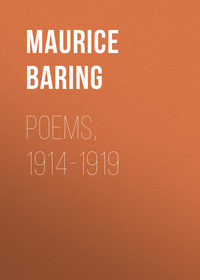 полная версия
полная версияOverlooked
I said I didn't suppose that Rudd had noticed anything. He didn't seem to me to notice that kind of thing.
She agreed, but said he had moments of lucidity which were unexpected and disconcerting. "For one second," she said, "he suspected we were laughing at him. Aunt Netty manages him perfectly. He loves her. She knows exactly what to say to him. He knows she is not critical. I think he is rather suspicious. How funny clever men are!" she said, after a pause.
I said she really meant to say, "How stupid clever men are!" I reminded her of the profound saying of one of Kipling's women, that the stupidest woman could manage a clever man, but it took a very clever woman to manage a fool.
She said she had always found the most disconcerting element in stupid people – or people who were thought to be stupid – was their sudden flashes of lucidity, when they saw things quite plainly. Clever men didn't have these flashes, but the curious thing was that Rudd did.
I said I thought this was because, apart from his literary talent, which was an accomplishment like conjuring or acting, quite separate from the rest of his personality, Rudd was not a clever man. All his cleverness went into his books. I said I thought there were two kinds of writers: those who were better than their books, and of whom the books were only the overflow, and those who put every drop of their being into the books and were left with a dry and uninteresting shell.
She said she thought she had only met that kind.
"Aunt Netty," she said, "loves all authors and it's odd considering – "
She stopped, but I ended her sentence: "She has never read a book in her life."
Miss Brandon laughed and said I was unfair.
"Reading tires her. I don't think anyone has time to read a book after they are eighteen. I haven't. But I feel I am a terrible wet blanket to all Aunt Netty's friends. I can't even pretend to be enthusiastic. You see I like the other sort of people so much better."
I said I was afraid the other sort of people were poorly represented here just now.
"We have another friend," she said, "at least, I have."
"Also a new friend?" I asked.
"I have known him in a way a long time," she said. "He is a Russian called Kranitski. We met him first two years ago at Florence. He was looking after his mother, who was ill and who lived at Florence. We used to meet him often, but I never got to know him. We never spoke to each other. We saw him, too, in the distance once on the Riviera."
I asked what he was like.
"He is all lucid intervals," she said, "it is frightening. But he is very easy to get on with. Of course I don't know him at all really. I have only seen him twice. But one didn't have to plough through the usual commonplaces. He began at once as if we had known each other for years, and I felt myself doing the same thing."
I asked what he was.
She didn't quite know.
I said I thought I knew the name. It reminded me of something, but I certainly did not know him. Miss Brandon said she would introduce me to him. I asked what he looked like.
"Oh, an untidy, comfortable face," she said. "He is always smiling. He is not at all international. He is like a dog. The kind of dog that understands you in a minute. The extraordinary thing is that after the first time we had a talk I felt as if I knew him intimately, as if I had met him on some other planet, as if we were going on, not as if we were beginning. I suddenly found myself telling him things I had never told anyone. Of course, this does happen to one sometimes with perfect strangers, at least it does to me. Don't you think it easy sometimes to pour out confidences to a perfect stranger? But I don't expect people give you the opportunity. They tell you things."
I said this did happen sometimes, probably because people thought I didn't count, and that as I couldn't see their faces they needn't tell the truth.
"I would find it as difficult to tell you a lie," she said, "as to tell a lie on the telephone. You know how difficult that is. I should think people tell you the truth as they do in the Confessional. The priest shuts his eyes, doesn't he?"
I said I believed this was the case.
"This Russian is a Catholic," she said. "Isn't that rare for a Russian?"
I said he was, perhaps, a Pole. The name sounded Polish.
No, he had told her he was not a Pole. He was not a man who explained. Explanations evidently bored him. He was not a soldier, but he had been to the Manchurian War. He had lived in the Far East a great deal, and in Italy. Very little in Russia apparently. He had come to Haréville for a rest cure.
"I asked him," she said, "if he had been ill, and he said something had been cut out of his life. He had been pruned. The rest of him went on sprouting just the same."
I said I supposed he spoke English.
Yes, he had had an English nurse and an English governess. He had once been to England as a child for a few weeks to the Isle of Wight. He knew no English people. He liked English books.
"Byron, and Jerome K. Jerome?" I suggested.
"No," she said, "Miss Austen."
I asked whether he had made Mrs. Lennox's acquaintance. Yes, they had talked a little.
"Aunt Netty talked to him about Tolstoi. Tolstoi is one of Mr. Rudd's stock topics."
I said I supposed she had retailed Rudd's views on the Russian. Was he astonished?
"Not a bit. I could see he had heard it all before," she said. "He was angelic. He shook his ears now and then like an Airedale terrier. Aunt Netty doesn't want him. Mr. Rudd is enough for her and she is enjoying herself. She always finds someone here. Last year it was a composer."
"Does Princess Kouragine know him?" I asked.
No, she didn't. She had never met him, but she knew of him.
I asked what Mr. Rudd thought about Princess Kouragine.
"Mr. Rudd and Aunt Netty discuss her for hours. He has theories about her. He began by saying she had the Slav indifference. Then Aunt Netty said she was French. But Mr. Rudd said it was catching. People who lived in Ireland became Irish, and people who lived in Russia became Russian. Then Aunt Netty said Princess Kouragine had lived in France and Italy. Mr. Rudd said she had caught the microbe, and that she was a woman who lived only by half-hours. He meant she was only alive for half-an-hour at a time."
At that moment someone walked up the path.
"Here is Monsieur Kranitski," she said. She introduced us.
"I have been walking to the end of the park," he said. "It is curious, but that side of the park with the dry lawn-tennis court, those birch trees and some straggling fir trees on the hill and the long grass, reminds me of a Russian garden which I used to know very well."
I said that when people had described that same spot to me I had imagined it like the descriptions of places in Tourgenev's books.
He said I was quite right.
I said it was a wonderful tribute to an author's powers that he could make the character of a landscape plain, not only to a person who had never been in his country, but even to a blind man.
Kranitski said that Tourgenev described gardens very well, and a particular kind of Russian landscape. "What I call the orthodox kind. I hear James Rudd, the writer, is staying here. He has a gift for describing places: Italian villages, journeys in France, little canals at Venice, the Campagna."
"You like his books?" I asked.
"Some of them; when they are fantastic, yes. When he is psychological I find them annoying, but one says I am wrong."
"He is too complicated," Miss Brandon said. "He spoils things by seeing too much, by explaining too much."
I asked Kranitski if he was a great novel reader. He said he liked novels if they were very good, like Miss Austen and Henry James, or else very, very bad ones. He could not read any novel because it was a novel. On the other hand he could read any detective story, good, bad or middling.
Miss Brandon asked him if he would like to know Rudd.
"Is he very frightful?" he asked.
I said I did not think he was at all alarming.
Yes, he said, he would like to make his acquaintance. He had never met an English author.
"You won't mind his explaining the Russian character to you?" I said.
Kranitski said he would not mind that, and that as his mother was Italian, and as he had lived very little in Russia and spoke Russian badly, perhaps Mr. Rudd would not count him as a Russian.
Miss Brandon said that would make the explanation more complicated still.
CHAPTER IV
Life begins very early in the morning here. The water-drinkers and the bathers begin their day at half-past six. My day does not begin till half-past seven, as I don't drink many glasses of the water.
At seven o'clock the village bell rings for Mass.
It was some days after the conversations I recorded in my last chapter I woke one morning early at half-past six and got up. I asked my servant, Henry, to lead me to the village church. I went in and sat down at the bottom of the aisle. Early Mass had not yet begun. The church seemed to me empty. But from a corner I heard the whispered mutter of a confession. Presently two people walked past me, the priest and the penitent, I surmised. Someone walked upstairs. A boy's footsteps then clattered past me. The church bell was rung. Someone walked downstairs and up the aisle; the priest again, I thought. Then Mass began. Towards the end someone again walked up the aisle. I remained sitting till the end.
At the door, outside the church, someone greeted me. It was Kranitski. He walked back with me to the hotel. He asked me whether I was a Catholic. I told him that Catholic churches attracted me, but that I was an agnostic. He seemed slightly astonished at this; astonished at the attraction in my case, I supposed. He said something which indicated surprise.
I told him I could not explain it. It was certainly not the exterior panoply and trappings of the church which attracted me, for of those I saw nothing. Nor was it the music, for although I was not a musician, my long blindness had made me acutely sensitive to sound, and the sounds in churches were often, I found, painful.
I asked him if he was a Catholic.
"I was born a Catholic," he said, "but for years I have not been pratiquant, until I came here. Not for seven years."
"You have not been inside a church for seven years?" I said.
"Oh yes," he said, "inside a church very often."
I said most people lost their faith as young men. Sometimes it came back.
"I was not like that," he said, "I never lost my faith, not for a day, not for an hour."
I said I didn't understand.
"There were reasons – an obstacle," he said. "But now they are not there any more. Now I am once more inside."
"Inside what?" I asked.
"The church. During those seven years I was outside."
"But as you went to church when you liked," I said, "I do not see the difference."
"I cannot explain it to you," he said. "You would not understand. At least, you would understand if you knew and I could explain, only it would be too long. But as it was it was like knowing you couldn't have a bath if you wanted one – like feeling always starved. You see I am naturally believing. If I had not been, it would have been no matter. I cannot help believing. Many times I should have liked not to believe. Many times I was envying people who feel you go out like a candle when you die. I am not mystique or anything like that; but something at the back of my mind is keeping on saying to me: 'You know it is true,' just as in some people there is something inside them which is keeping on saying: 'You know it is not true.' And yet I couldn't do otherwise. That is to say, I resolved not to do otherwise. Life is complicated. Things are so mixed up sometimes. One has to sacrifice what one most cares for. At least, I had to. I was caring for my religion more than I can describe, but I had to give it up. No, that is wrong, I didn't have to, but I gave it up. It was all very embarrassing. But now the obstacle is not there. I am free. It is a relief."
"But if you never lost your faith and went on going to church, and could go to church whenever you liked, I cannot see what you had to give up. I don't see what the obstacle prevented."
"To explain you that I should have to tell too long a story," he said. "I will tell you some day if you have patience to listen. Not now."
We had got back to the park. I went into the pavilion to drink the water. I asked Kranitski if he was going to have a glass.
"No," he said, "I do not need any waters or any cure. I am cured already, but I need a long rest to forget it all. You know sometimes after illness you regret the maladie, and I am still a little bit dizzy. After you have had a tooth out, in spite of the relief from pain you mind the hole."
He went into the hotel.
Later in the morning I met Princess Kouragine.
She asked me how Rudd's novel was getting on. I said I had not seen him, and had had no talk with him about it. I told her I had made the acquaintance of Kranitski.
"I too," she said. "I like him. I never knew him before, but I know a little of his history. He has been in love a very long time with someone I knew – and still know, I won't say her name. I don't want to rake up old scandals, but she was Russian, and she lived, a long time ago, in Rome, and she was unhappy with her husband, whom I always liked, and thought extremely comme il faut, but they were not suited."
"Why didn't she divorce him?" I asked.
"The children," she said; "three children, two boys and a girl, and she adored them, so did the father, and he would never have let them go, nor would she have left them for anyone in the world."
"If she lived at Rome, I may have met her," I said.
"It is quite possible," said the Princess. "My friend was a charming person, a little vague, very gentle, very graceful, very musical, very attractive."
"Is the husband still alive?" I asked.
"Yes, he is alive. They do not live at Rome any more, but in the Caucasus, and at Paris in the winter. I saw them both in Paris this winter."
I asked if the Kranitski episode was still going on.
"It is evidently over," said Princess Kouragine.
"Why?" I asked.
"Because he is happy. Il n'a plus des yeux qui regardent au delà."
"Was he very much in love with her?" I asked.
"Yes, very much. And she too. He will be a character for Mr. Rudd," she went on, "I saw him talking to him yesterday, with Mrs. Lennox and Jean. Jean likes him. She looks better these last two days."
I said I had noticed she seemed more lively.
"Ah, but physically she looks different. That child wants admiration and love."
"Love?" I said. "Won't it be rather unfortunate if she looks for love in that quarter? He won't love again, will he? Or not so soon as this."
"You are like the people who think one can only have measles once," she said. "One can have it over and over again, and the worse you have it once, the worse you may get it again. He is just in the most susceptible state of all."
I said they both seemed to me in the same position. They were both of them bound by old ties.
"That is just what will make it easier."
I asked whether there would be any other obstacles to a marriage between them, such as money. Princess Kouragine said that Kranitski ought to be quite well off.
"There was no obstacle of that kind," she said. "He is a Catholic, but I do not suppose that will make any difference."
"Not to Miss Brandon," I said, "nor really to her aunt: Mrs. Lennox might, I think, look upon it as a kind of obstacle; but a little more an obstacle than if he was a radical and a little less of one than if he was socialist."
She said she did not think that Mrs. Lennox would like her niece to marry anyone.
"But if they want to get married nothing will stop them. That girl has a character of iron."
"And he?" I asked.
"He has got some character."
"Would the other person mind – the lady at Rome?"
"She probably will mind, but she would not prevent it. Elle est foncièrement bonne. Besides which she knows that it is over, there is nothing more to be said or done. She is philosophe too. A sensible woman. She insisted on marrying her husband. She was in love with him directly she came out, and they were married at once. He would have been an excellent husband for almost anyone else except for her, and if she had only waited two years she would have known this herself. As it was, she married him, and found she had married someone else. The inevitable happened. She is far too sensible to complain now. She knows she has made a gâchis of her life, and that she only has herself to thank. As it is, she has her children and she is devoted to them. She will not want to make a gâchis of Kranitski's life as well as of her own, and she nearly did that too. If he marries and is happy she ought to be pleased, and she will be."
"And what about the young man who was engaged to Miss Brandon?" I asked.
"I do not give that story a thought," said the Princess. "They were probably in the same situation towards each other as the Russian couple I told you of were before they were married, only Jean had the good fortune to do nothing in a hurry. She is probably now profoundly grateful. How can a girl of eighteen know life? How can she even know her own mind?"
"It depends on the young man," I said. "We know nothing about him."
"Yes, we know nothing about him; but that probably shows there is nothing to know. If there were something to know we should know it by now. It was all so long ago. They are both different people now, and they probably know it."
I said I would not like to speculate or even hazard a guess on such a matter. It might be as she said, but the contrary might just as well be true. I did not think Miss Brandon was a person who would change her mind in a hurry. I thought she was one of the rare people who did know her own mind. I could imagine her waiting for years if it was necessary.
As I was saying this, Princess Kouragine said to me:
"She is walking across the park now with Kranitski. They have sat down on a seat near the music kiosk. They are talking hard. The lamp is being lit – she looks ten years younger than she did last week, and she has got on a new hat."
CHAPTER V
During the rest of that day I saw nobody. I gathered there were races somewhere, and Mrs. Lennox had taken a large party. Just before dinner I got a message from Rudd asking whether he might dine at my table.
I do not dine in the big dining-room, as I find the noise and the bustle trying, but in a smaller room where some of the visitors have their petit déjeuner.
So we were alone and had the room to ourselves. I asked him if he had been working.
He said he had been making notes, plans and sketches, but he could not get on unless he could discuss his work with someone.
"The story is gradually taking shape," he said. "I haven't made up my mind what the setting is to be. But I have got the kernel. My story is what I told you it would be. The Sleeping Beauty in the Wood, but when the Prince wakes her up she is no longer the same person as she was when she went to sleep. The enchantment has numbed her. She will have none of the Fairy Prince; she doesn't recognize him as a Fairy Prince, and she lets him go away. As soon as he is gone she regrets what she has done and begins to hope he will come back some day. Time passes and he does come back, but he has forgotten her and he does not recognize her. Someone else falls in love with her, and she thinks she loves him; but, at the first kiss he gives her, the forest closes round her and she falls asleep again."
I asked him if it was going to be a fairy-tale.
He said, No, a modern story with perhaps a mysterious lining to it.
He imagined this kind of story. A girl brought up in romantic surroundings. She meets a boy who falls in love with her. This, in a way, wakens her to life, but she will not marry him; and he goes away for years. Time passes. She leads a numbed existence. She travels, and somewhere abroad she meets the love of her youth again. He has forgotten her and loves someone else. Someone else wants to marry her. They are engaged to be married. But as soon as things get as far as this the man finds that in some inexplicable way she is different, and he breaks off the engagement, and she goes on living as she did before, apparently the same, but in reality dead.
"Then," I said, "she always loves the Fairy Prince of her youth."
He said: "She thinks she loves him when it is too late, but in reality she never loves anyone. She is only half-awake in life. She never gets over the enchantment which numbs her for life."
I asked what would correspond to the enchantment in real life.
He said perhaps the romantic surroundings of her childhood.
I said I thought he had not meant her to be a romantic character.
"No more she is," he explained. "The romance is all from outside. She looks romantic, but she isn't. She is like a person who has been bewitched. She always thinks she is going to behave like an ordinary person, but she can't. She has no dreams. She would like to marry, to have a home, to be comfortable and free, but something prevents it. When the young man proposes to her she feels she can never marry him. As soon as he is gone, she regrets having done this, and imagines that if he came back she would love him."
"And when he does come back, does she love him?" I asked.
"She thinks she does, but that is only because he has forgotten her. If he hadn't forgotten her, and had asked her to marry him, she would have said 'No' a second time. Then when the other person who is in love with her wants to marry her, she thinks she is in love with him; she thinks he is the Fairy Prince; but as soon as they are engaged, he feels that his love has gone. It has faded from the want of something in her which he discovers at the very first kiss; he breaks off the engagement, and she is grateful at being set free, and glad to go back to her forest."
I asked if she is unhappy when it is over.
He said, "Yes, she is unhappy, but she accepts it. She is not broken-hearted because she never loved him. She realizes that she can't love and will never love, and accepts the situation."
I said that I saw no mysterious lining in the story as told that way.
He said there was none; but the lining would come in the manner the story was told. He would try and give the reader the impression that she had come into touch with the fairy world by accident and that the adventure had left a mark that nothing could alter.
She had no business to have adventures in fairy land.
She had strayed into that world by mistake. She was not native to it, although she looked as if she were.
I said I thought there ought to be some explanation of how and why she got into touch with the fairy world.
He said it was perhaps to be found in the surroundings of her childhood. She perhaps inherited some strange spiritual, magic legacy. But whatever it was it must come from the outside. Perhaps there was a haunted wood near her home, and she was forbidden to go into it. Perhaps the legend of the place said that anyone of her family who visited that wood before they were fifteen years old, went to sleep for a hundred years. Perhaps she visited the wood and fell asleep and had a dream. That dream was the hundred years' sleep, but she forgot the dream as soon as she was awake.
I asked him if he thought this story fitted on to Miss Brandon's character or to the circumstances of her life.
He said he knew little about the circumstances of her life. Mrs. Lennox had told him that her niece had once nearly married someone, but that it had been an impossible marriage for many reasons, and that she did not think her niece regretted it. That several people had wanted to marry her abroad, but that she had never fallen in love.
"As to her character, I am confirmed," he said, "in what I thought about her the first time I saw her. All her looks are poetry and all her thoughts are prose. She is practical and prosaic and unimaginative and quite passionless. But I should not be in the least surprised if she married a fox-hunting squire with ten thousand a year. All that does not matter to me. I am not writing her story, but the story of her face. What might have been her story. And not the story of what her face looks like, but the story of what her face means. The story of her soul, which may be very different from the story of her life. It is the story of a numbed soul. A soul that has visited places which it had no business to visit and had had to pay the price in consequence.









